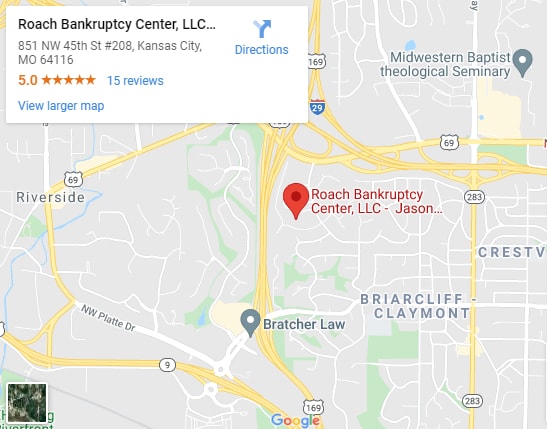Using Bankruptcy to Clear Your Student Loans
Student loan debt has become a pervasive concern for millions of Americans, including Kansas City, Missouri residents, which often lingers long after graduation. The ability to discharge student loans through bankruptcy has historically been limited, with the belief that student loans are nondischargeable in most cases. However, the legal landscape has evolved, creating opportunities for those facing financial distress to seek relief through student loan bankruptcy in Kansas City, MO.
Quick Summary:
- Student loan debt is widespread for many Americans, persisting long after graduation and often deemed nondischargeable through bankruptcy.
- Despite historical limitations, the legal landscape has evolved, offering opportunities for those facing financial distress to seek relief through student loan bankruptcy.
- There are two primary bankruptcy options for addressing student loans: Chapter 7 and Chapter 13.
- Discharging student loans based on undue hardship involves meeting specific criteria, including demonstrating an inability to maintain a minimal standard of living and making good faith efforts to repay the loans.
- Various courts use different tests to evaluate undue hardship. These tests assess factors like poverty standards, persistence of financial difficulties, and the debtor’s good faith effort to repay.
Does Bankruptcy Cover My Student Loans?
Filing for bankruptcy on student loans is complex and challenging, and it is crucial to consider that student loans are generally considered nondischargeable debts.
In most cases, you cannot eliminate your student loan debt through bankruptcy. However, there are some circumstances under which you may be able to obtain relief or restructure your student loan payments through bankruptcy.
How Can Bankruptcy Help Manage My Student Loans?
There are two primary types of bankruptcy under which student loans may be considered:
Chapter 7 Bankruptcy
In Chapter 7 bankruptcy, most unsecured debts can be discharged, but student loans are typically not dischargeable unless the debtor can prove undue hardship.
Proving undue hardship can be challenging and often requires meeting a high legal standard, such as demonstrating that you cannot maintain a minimal standard of living if forced to repay the loans.
Chapter 13 Bankruptcy
Chapter 13 bankruptcy involves creating a structured repayment plan to pay off all or a portion of your debts over three to five years. While student loans are still non-dischargeable in Chapter 13, the repayment plan may allow for more manageable payments based on your income and expenses.
Remember that discharging student loans in bankruptcy is an exception rather than the rule. The legal criteria for proving undue hardship can vary, and it often involves demonstrating a persistent inability to maintain a minimal standard of living while repaying the loans.
How Do I Discharge My Student Loans?
Discharging student loans based on undue hardship involves meeting a high legal standard, and it’s not an easy path. Here are the general steps and considerations:
Filing for Bankruptcy
Consider filing for bankruptcy under Chapter 7 or Chapter 13. While both chapters allow for the discharge of certain debts, including some unsecured debts, student loans are typically not dischargeable unless you can prove undue hardship.
Demonstrating Undue Hardship
Undue hardship is a legal term that varies in interpretation and is subject to the laws of your jurisdiction. To prove undue hardship, you usually need to demonstrate that:
- You cannot maintain a minimal standard of living for yourself and your dependents if you are forced to repay the loans.
- This state of affairs is likely to persist for a significant portion of the repayment period.
- You have made good faith efforts to repay the loans before seeking bankruptcy relief.
Adversary Proceeding
To pursue the discharge of student loans based on undue hardship, you may need to initiate an adversary proceeding within your bankruptcy case. An adversary proceeding is a separate lawsuit within the bankruptcy case, specifically focused on the dischargeability of your student loans.
Court Decision
The court will ultimately decide whether your student loans can be discharged based on the evidence presented during the adversary proceeding. Courts may use different tests to determine undue hardship, such as the Brunner Test, which evaluates factors like your income, expenses, good faith efforts to repay, and the likelihood of future financial improvement.
What are the Different Student Loan Tests?
When attempting to discharge student loans in bankruptcy by proving undue hardship, various courts use different tests to evaluate the debtor’s circumstances.
While there is no uniform standard, there are three commonly recognized tests. Here’s an overview of these tests:
Brunner Test
The Brunner Test is one of the most widely used tests for determining undue hardship. It generally consists of three prongs that a debtor must satisfy:
- Poverty Standard: The debtor cannot maintain a minimal standard of living for themselves and their dependents based on current income and expenses.
- Persistence: The financial difficulties are likely to persist for a significant portion of the repayment period of the student loans.
- Good Faith Effort: The debtor has made a good faith effort to repay the loans.
Courts often interpret these prongs rigorously, making it challenging for debtors to meet the standard for discharge.
Totality of the Circumstances Test
Some courts use the totality of the circumstances test, which considers all relevant factors in the debtor’s situation. This test is more flexible for the court to assess the overall circumstances rather than relying on strict criteria.
Factors considered may include income, expenses, health, family size, and any other relevant circumstances that impact the ability to repay student loans.
Good Faith Test
The good faith test evaluates whether the debtor has made a genuine and sincere effort to repay the student loans. This test may focus on the debtor’s actions leading up to the bankruptcy filing, considering factors such as job searches, attempts to negotiate alternative repayment plans, and overall financial responsibility.
It is critical to recognize that the interpretation and application of these tests can vary between jurisdictions and individual courts. Additionally, legislative changes or court precedents may influence the standards over time.
Get the Help You Need From Our Bankruptcy Lawyers
On the issue of student loan bankruptcy in Kansas City, MO, seeking the guidance of experienced attorneys is not just advisable. It is often a necessity. Roach Bankruptcy Center, LLC, brings a wealth of experience, ensuring you can manage student loan debt confidently.
Navigating the complexities of student loan bankruptcy is where the experience of our knowledgeable attorney becomes indispensable. Our experienced lawyers thoroughly understand the legal landscape, offering guidance tailored to your unique situation.
From deciphering the eligibility criteria to strategically presenting the case, our attorneys act as trusted advocates for financial relief. Get a free initial consultation from our bankruptcy attorneys today!



